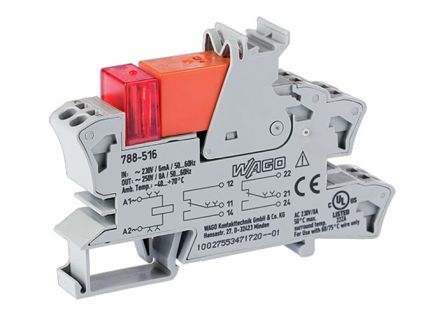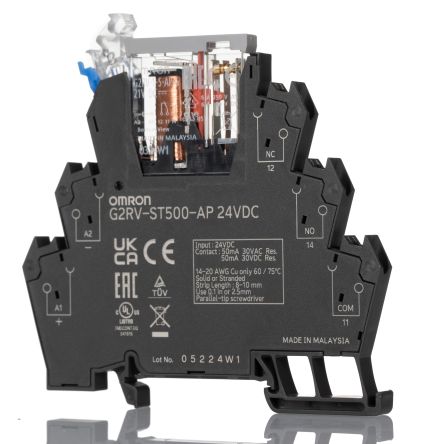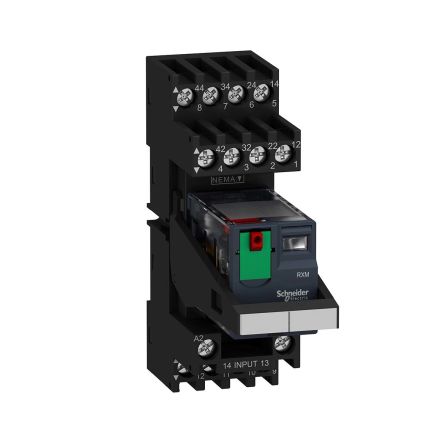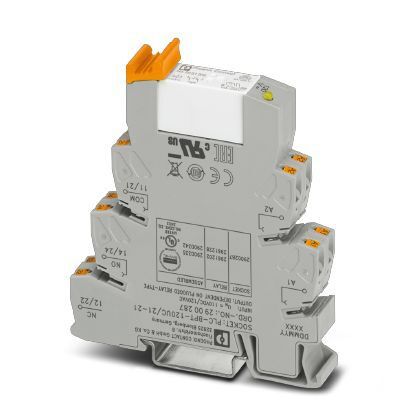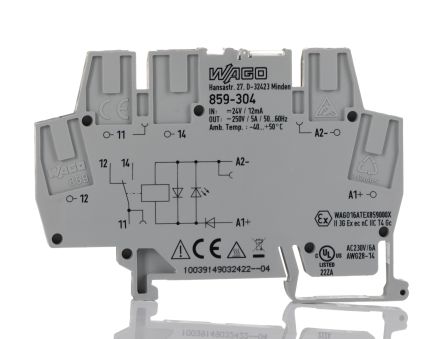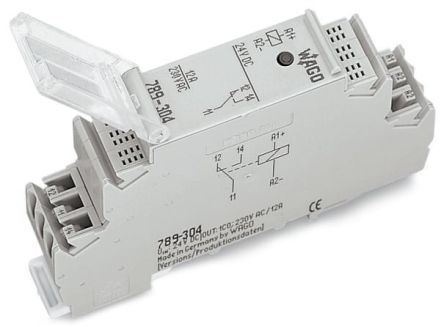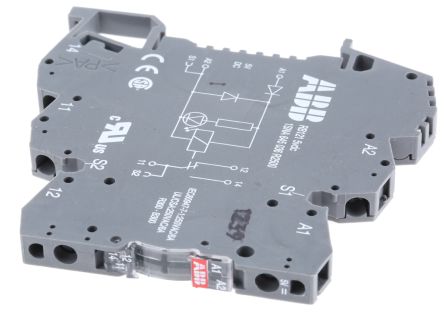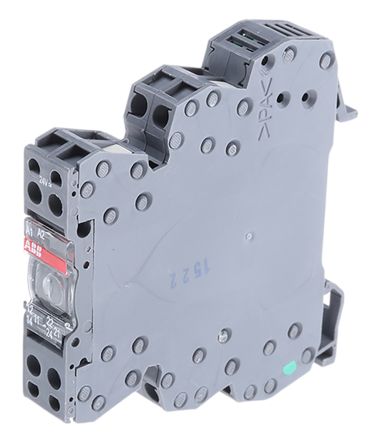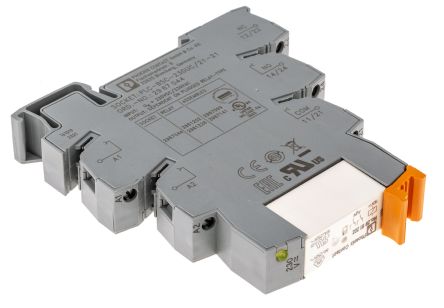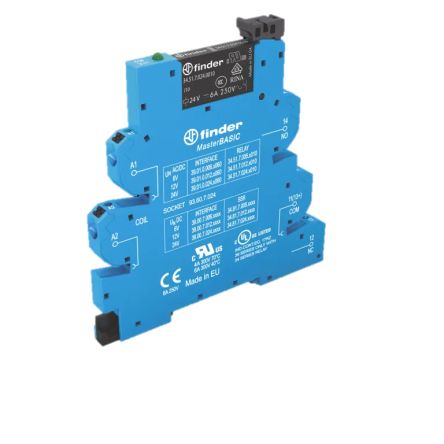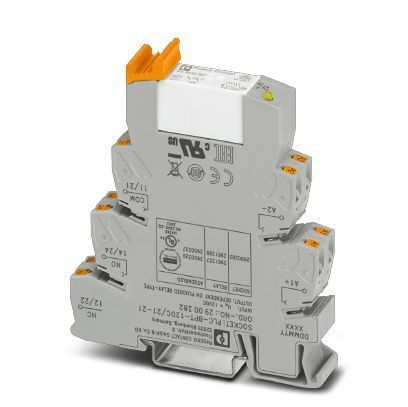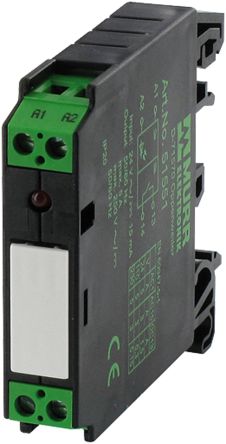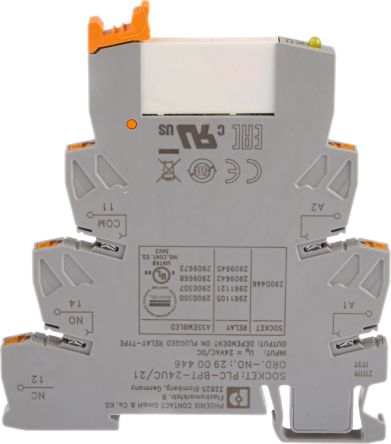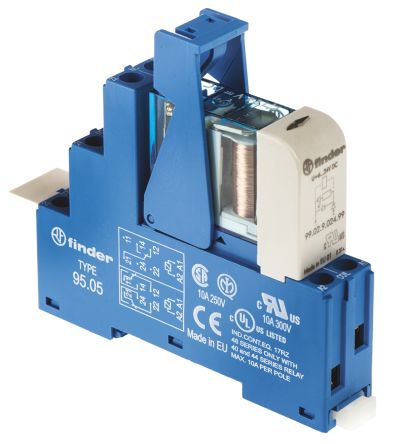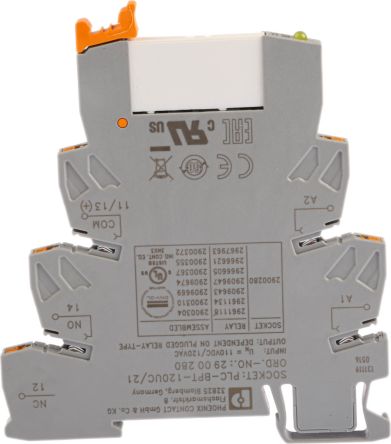- Automation & Control Gear
- Cables & Wires
- Enclosures & Server Racks
- Fuses & Circuit Breakers
- HVAC, Fans & Thermal Management
- Lighting
- Relays & Signal Conditioning
- Switches
- Batteries & Chargers
- Connectors
- Displays & Optoelectronics
- ESD Control, Cleanroom & PCB Prototyping
- Passive Components
- Power Supplies & Transformers
- Raspberry Pi, Arduino, ROCK, STEM Education & Development Tools
- Semiconductors
Electromechanical Interface Relays
Electromechanical interface relays are crucial devices in modern automated systems, ensuring the safe and reliable transfer of digital signals necessary for system operations. These relays are not just simple switches; they are sophisticated tools designed to manage interactions between isolated components that cannot be directly connected due to differing electrical potentials or voltages.
They come in various types, each tailored to the needs of the specific applications they are used in. From basic relays that utilise an electromagnet to control electrical circuits to more robust contactors designed for high-power applications like electric motors, the role of these relays is foundational in facilitating controlled operations across numerous mechanical devices.
Functions of Electromechanical Interface Relays
Electromechanical interface relay modules are equipped with advanced galvanic isolation, which amplifies and safeguards signals between the input and output systems of the relay. This isolation is crucial in preventing signal interference, thereby maintaining both electrical and informational integrity across the systems.
Unlike general-purpose relays where isolation is a secondary function, in interface relay modules, this feature is a primary concern and is rigorously enhanced to ensure optimal performance. These relays play a pivotal role in managing power transfer, with components like the electromagnet, armature, and electrical contacts working in concert to switch and transmit power efficiently.
Applications of Electromechanical Interface Relays
Electromechanical interface relays are integral to a wide range of applications across various sectors, playing key roles in safety, control, and power management:
- Critical Infrastructure: They regulate and safeguard functions in systems like power generation and large-scale electronic frameworks.
- Medical Imaging: Essential in complex devices such as X-ray machines, ensuring precise operation and safety.
- Industrial Uses: In manufacturing and transportation, these relays control power distribution, crucial for operational safety and efficiency.
- Building Automation: Employed in building management systems to enhance energy efficiency and control over electrical systems.
- Control Panels: Act as central components in managing and distributing electrical loads, critical in both industrial and commercial settings.
These applications highlight the relay's ability to handle, amplify, and direct electrical outputs, making them indispensable for precise power management in diverse environments.
Advantages and Disadvantages of Using Interface Relays
Advantages:
- Reliable Isolation: Provides robust galvanic isolation that safely separates different electrical circuits, crucial for preventing interference that can compromise system integrity.
- Versatile Applications: These relays are exceptionally adaptable, finding utility across numerous sectors including industrial automation, healthcare for medical devices, and energy management systems, demonstrating their broad applicability.
- Control Precision: Electromechanical relays offer meticulous control over electrical operations with high reliability, making them ideal for applications where precise switching and regulation of electrical currents are necessary for system performance and safety.
Disadvantages:
- Physical Wear: The mechanical nature of these relays means they are subject to wear and tear from repeated use, which can lead to a decrease in reliability and the need for periodic maintenance or replacement to ensure ongoing effectiveness.
- Slower Switching: When compared to solid-state relays, electromechanical relays have inherently slower response times, which might not be suitable for applications requiring rapid switching.
- Sensitivity to Environmental Factors: Their performance is susceptible to environmental influences, such as fluctuations in temperature and humidity, which can affect the mechanical operation and longevity of the relays.
Delivery Information
Experience efficient delivery services across Singapore with next-working-day dispatch for all online orders placed before 3:30 pm from Monday to Friday. This service includes all in-stock items, from RCCBs to power monitoring relays and other related products. For a detailed guide on all our shipping and delivery policies, including options for offline purchases and combined shipping, please visit our delivery information page.
Related links
- Schneider Electric Harmony Relay RUM Series Electromechanical...
- Dold Interface Relay Module
- Siemens LZS Series LED Module
- Phoenix Contact UM-2KS50/4FLK14/YCS Series Interface Relay Module
- Siemens SIRIUS 3RQ3 Input Coupler Series Relay 115V ac/dc Coil, SPDT
- Siemens SIRIUS 3RQ3 Output Coupler Series Relay 110V dc Coil, SPDT
- EMG Series Relay Module 24V Coil 6A Load
- Phoenix Contact Relay Module 12V Coil 50mA Load

